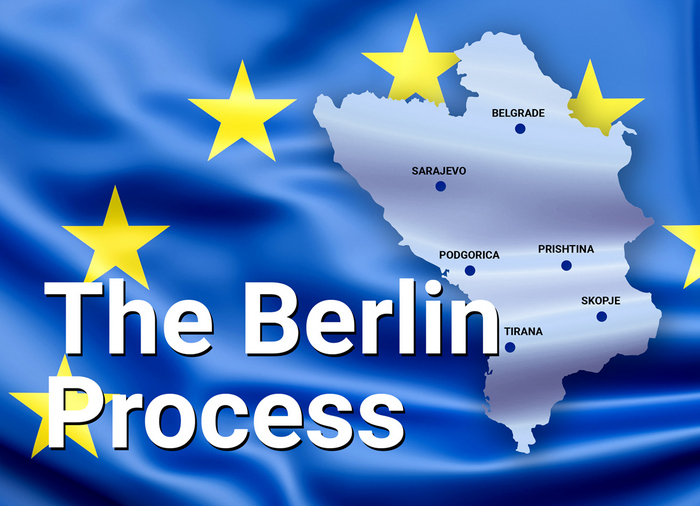Intricate Future of the Berlin Process

The UK will be hosting the last of the five Western Balkans Summits in the framework of the Berlin Process in 2018, a concluding step for the process that was initiated in 2014 by Angela Merkel. The aim was to support reforms in the six Western Balkan countries and advance EU integration. It focuses on economic growth and increased multi-level regional cooperation, resolving outstanding bilateral and internal issues, and achieving reconciliation within and between the societies in the region. As we are approaching the end of a five-year cycle, the question is what is the future of the process? Although many analysts point to obvious lack of progress when it comes to the EU accession, we need to remember that its aim is also to contribute to long-term stability of the region as a self-contained geo-political unit. The Berlin Process is, and should be, as much about the EU accession as it is about building the capacity of the countries during the transition and preparing them for a scenario in which enlargement doesn’t take place for a foreseeable future. It is crucial for it to continue post-2018 because it strengthens regional cooperation, which is seen as the main precursor of both reconciliation and the EU individual accession aspirations.
To pave the way forward, we need to look back at some of its shortcomings. First, each year the list of commitments added to the summit declaration is expanding exponentially to include more and more areas. This seriously impedes efficiency of the agreed actions and makes the stakeholders accountability problematic. With a wide range of areas, the Western Balkans governments can pick preferences for engagement, the ones less problematic for execution or those perceived as holding more value in terms of foreign investments, even though their contribution to sustainability of the region is questionable. In addition, some good initiatives from the start of the process have perished in the continuous reformulation of commitments. For example, the final Declaration of the Berlin Conference in 2014 put a strong emphasis on reducing youth unemployment by supporting needs-based academic and vocational training. Since the Vienna Summit, the youth focus is articulated through RYCO initiative that, although very comprehensive, has lost this really important practical focus that enables for inclusion of non-academically oriented young people whose unemployment continues to loom. Inclusiveness and building platforms for a broad citizens’ participation should be an integral part of future actions.
Second, Berlin Process involves only several EU member states, namely Germany, France, Italy, Austria, the UK plus Croatia and Slovenia. It is difficult to see the areas of advancement for the post 2018 Berlin Process with keeping the group of actors in such a narrow circle and leaving other EU member states with interest in the Western Balkans, particular immediate neighbours, without possibility of participation. Such approach is an obstacle to taking full advantage of some of the regional initiatives such as EUSAIR, the Central European Initiative or (Regional Anti-corruption Initiative (RAI). It creates an artificial boundary between the Western Balkans and the majority of the EU member states. Finally, not involving the neighbouring EU member states is problematic for resolution of bilateral issues and this is particularly relevant for neighbourly relations, where the involvement of the countries such as Greece that has an open long-term dispute with Macedonia would be hugely beneficial for both of these countries. The Berlin Process managed to create a legacy that should be made available to more states and issues that exist between them.
In summary, the London Summit 2018 needs to be future oriented and tackle the complexity surrounding actors of the Berlin Process, projection of goals and means to achieving them rather than expanding further, as the previous Summits did. There are concerns about the UK’s role in the Western Balkans in relation to Brexit. However, withdrawal from the EU membership shouldn’t be interpreted as the UK’s diminishing interest of influence on regional political and economic trends. Quite on the contrary, for the UK this could be an opportunity to approach the Western Balkans separately with a fresh type of engagement in the region, which is not encumbered by the EU accession process and its conditionality. Involvement of the new countries will prevent a situation where the supported reforms are tangential to the EU accession aspirations and pathway. Staying focused is another key element, where it is clear that attempting to include every possible challenge the Western Balkans is facing, from developing infrastructure to global migration related security issues. Berlin Plus Process has the potential for a major contribution to the stability of the Western Balkans and countering a growing grip of Russian influence. It should continue riding on a dual carriageway – advancing the EU accession of the WB6 and supporting reforms and building capacities of individual countries.
Marika Djolai,
Member of the Balkans in Europe Policy Advisory Group (BiEPAG)
